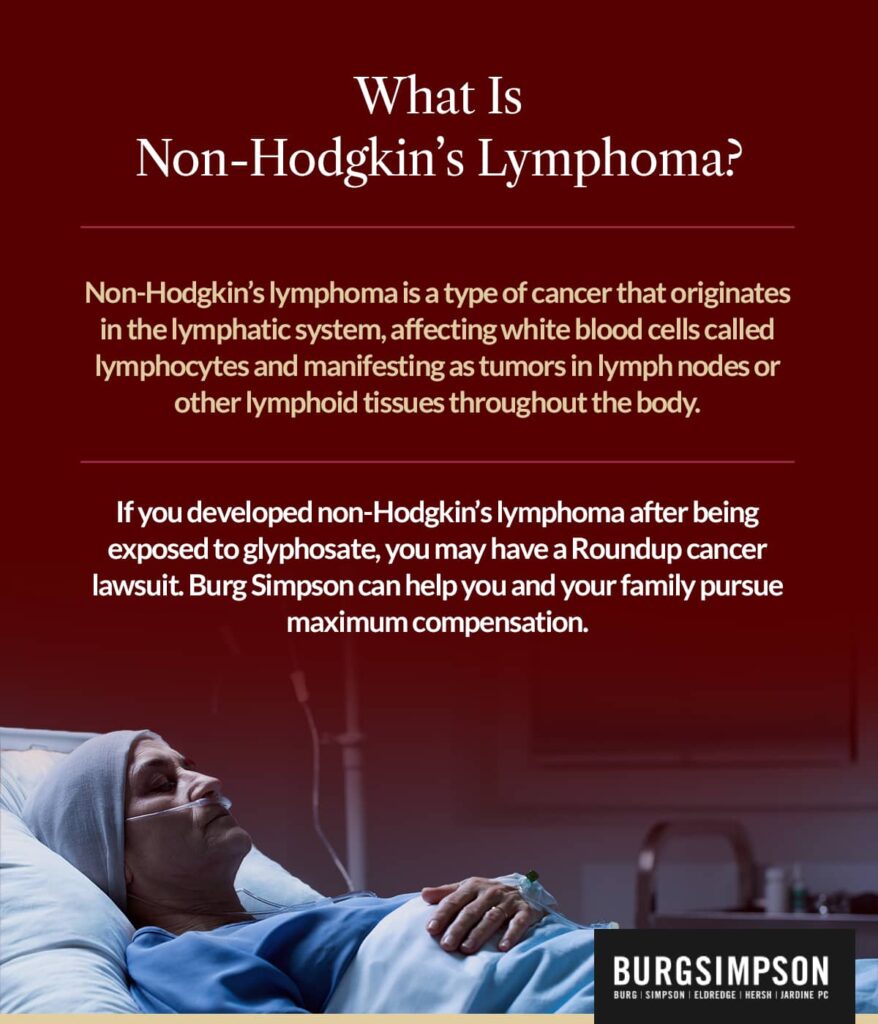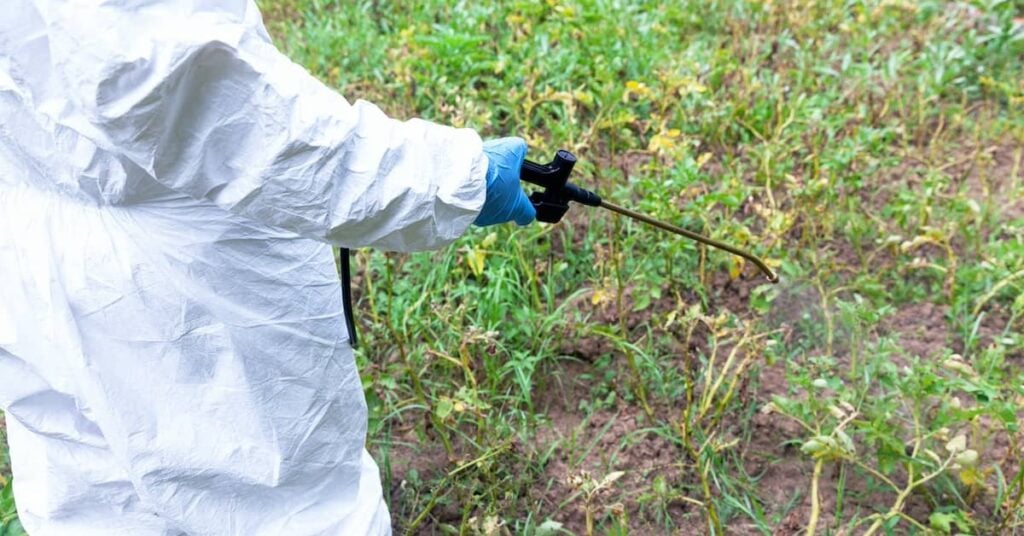Did You Develop Cancer After Using the Herbicide Roundup?
Roundup contains a herbicide known as glyphosate, which has been linked to cancer. If you developed non-Hodgkin’s lymphoma after being exposed to glyphosate, you may have a Roundup cancer lawsuit. Burg Simpson can help you and your family pursue maximum compensation for the physical, emotional, and financial effects of a Roundup-related cancer.
Burg Simpson has extensive, nationwide experience representing plaintiffs in product liability litigation. We have obtained hundreds of millions of dollars in verdicts, judgments, and settlements for clients in unsafe product claims.
View Our Results
For a FREE and confidential case evaluation of your potential Roundup cancer lawsuit, call Burg Simpson at 888-895-2080 today. Our lawyers represent clients throughout the United States.

What Is Non-Hodgkin’s Lymphoma?
Non-Hodgkin’s lymphoma is a type of cancer that originates in the lymphatic system, affecting white blood cells called lymphocytes and manifesting as tumors in lymph nodes or other lymphoid tissues throughout the body. It is the cancer most commonly cited in Roundup cancer lawsuits.
There are several subtypes of non-Hodgkin’s lymphoma associated with Roundup exposure, including diffuse large B-cell lymphoma, mantle cell lymphoma, Burkitt lymphoma, peripheral T-cell lymphoma, and others.
Each subtype varies in its clinical behavior, histological characteristics, and symptoms. General symptoms of non-Hodgkin’s lymphoma include:
- Swelling of the lymph nodes in the neck, armpits, and/or groin
- Unexplained fever
- Persistent fatigue
- Night sweats
- Unintentional weight loss
- Abdominal pain or swelling
- Chest pain or pressure, coughing, or difficulty breathing
- Itchy skin
- Recurrent infections
- Easy bruising or bleeding
Researchers have found that individuals exposed to glyphosate-based herbicides are 41% more likely to develop non-Hodgkin’s lymphoma. Burg Simpson can help if you or someone you love has been diagnosed with non-Hodgkin’s lymphoma and you suspect Roundup may have been a factor.

Who Qualifies for a Roundup Lawsuit?
In 2015, the International Agency for Research on Cancer classified glyphosate as a probable human carcinogen. To date, more than 100,000 lawsuits have been filed against the makers of Roundup by individuals who developed cancer after extensive use of or exposure to the herbicide.
To qualify for a lawsuit, you need to prove that you had significant or long-term exposure to Roundup. Many plaintiffs worked as gardeners, groundskeepers, farmers, or in other occupations where Roundup was regularly used. Individuals living in close proximity to fields, parks, and other areas treated with Roundup may also have a claim.
Second, you need to prove that you have non-Hodgkin’s lymphoma. The diagnosis must have been made on or after June 1, 2018.
Finally, your Roundup cancer lawsuit must be filed before the statute of limitations in your state expires. The statute of limitations is the time limit for taking legal action. It is in your best interest to speak to an attorney as soon as possible to ensure your rights are protected.
Contact Burg Simpson for FREE Today
Why Choose Burg Simpson?
Founded in 1976, Burg Simpson has a long history of fighting for what is right. We are recognized for our local clout and national strength. Defendants of all sizes—from local companies to global corporations—know that we provide aggressive representation for our clients.
Nationally and in multiple major metropolitan areas, our firm has achieved distinction as a leader in mass tort litigation and class actions. Our team of 70+ attorneys provides the highest standard of legal service. In addition to handling the complexities of your claim, we strive to understand your unique situation. This enables us to achieve superior outcomes based on clients’ individual needs and goals.
Find Out If You Have a Roundup Cancer Lawsuit
Call 888-895-2080 today for a FREE evaluation of your case.